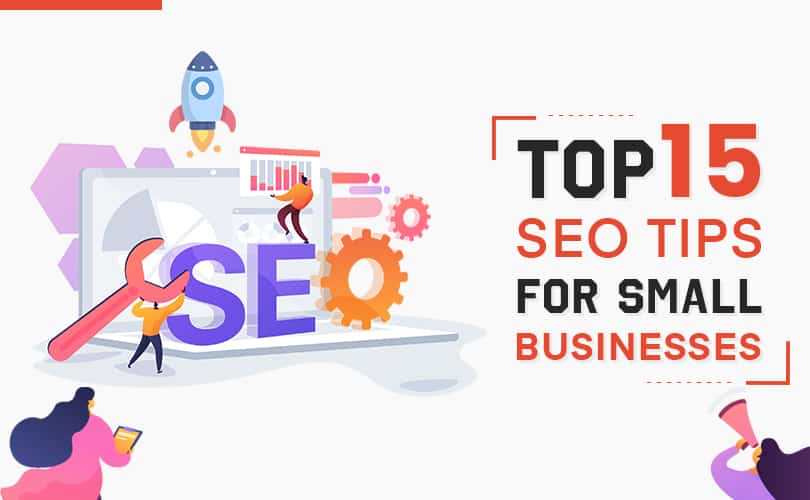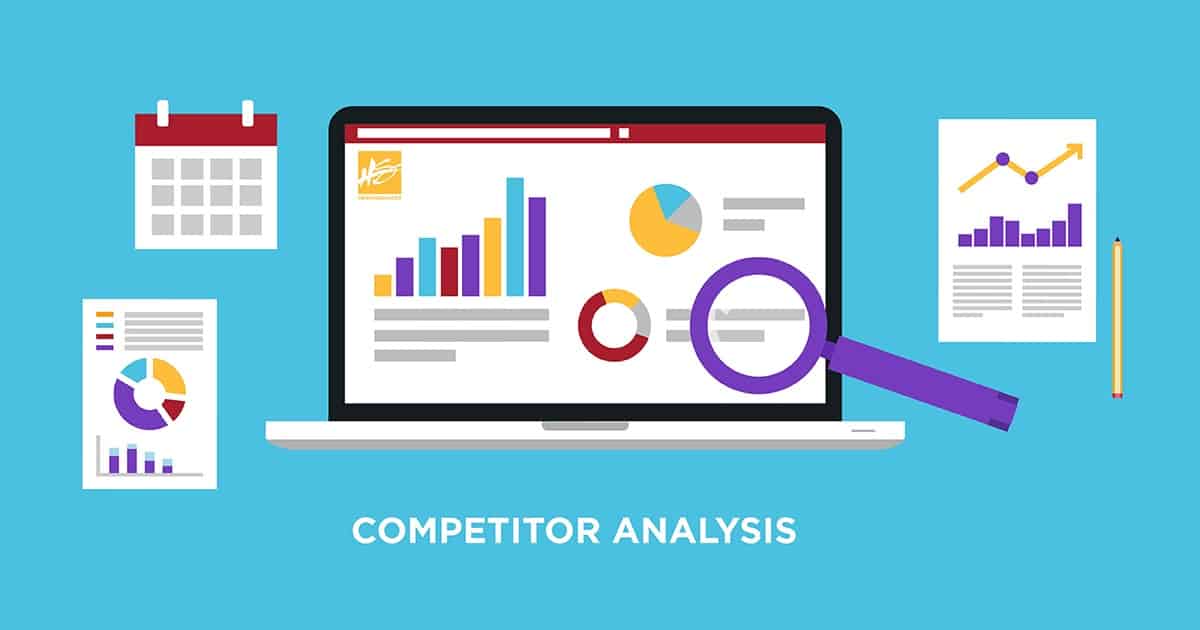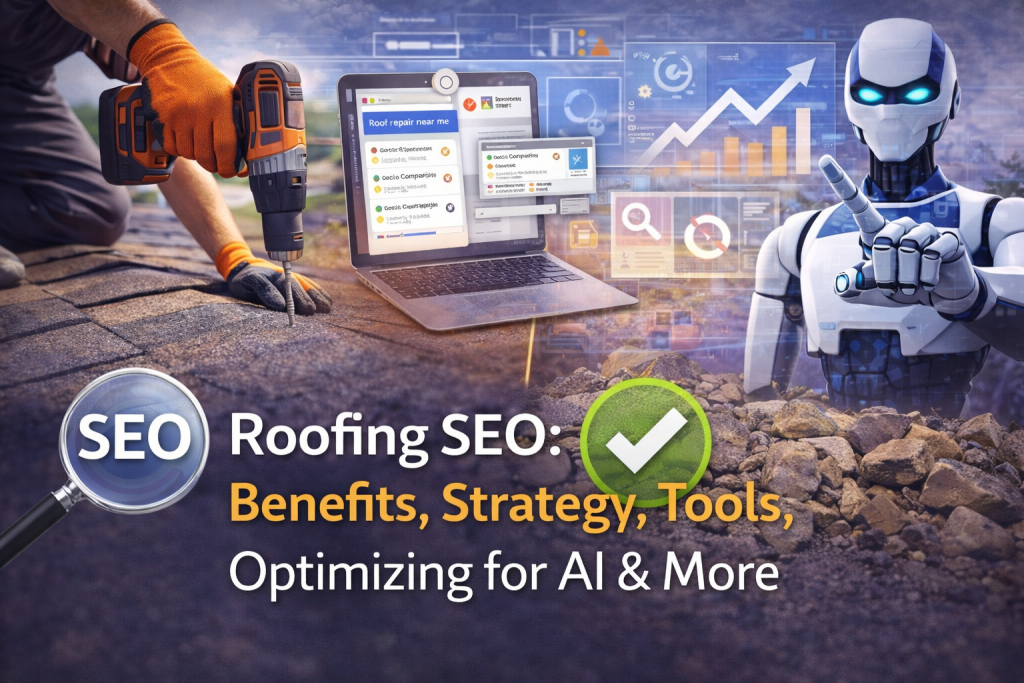Top 15 SEO Tips for Small Businesses

For many small business owners and merchants, SEO can look and feel like a somewhat foreign landscape. Many well-intentioned but inexperienced business leaders perceive SEO to be too complex to understand – but it really doesn’t have to be!
The Cibirix team has come up with an SEO checklist for small business leaders to leverage. This handy reference will help you better understand the important factors to focus on, the tools you should be using, and how much time and effort you should be investing in optimizing your website – including your product or service pages – for the benefit of better search engine results.
SEO as a concept really isn’t all that complicated. But it can quickly start to feel complicated if you only have limited time, resources, or money to invest. We understand, and we’re here to help!
Any small business owner would LOVE to generate some valuable leads through online channels. But in order to achieve this goal, it’s important to follow a set of proven SEO strategies and tasks.
At the same time, it’s also important for you to realize that better organic rankings simply don’t happen overnight.
By going through the following SEO tips, you’ll also learn about the following:
- Why is SEO important?
- What should you address?
- Which tools should you be using?
- How much time will you need to commit?
Let’s get started!
1. Understand Your Customers
SEO isn’t just about following White Hat guidelines in order to rank on respective search engines. It also requires a special focus on the relevancy of the content that you publish. For this reason, it’s very important for you to understand the customer’s intent.
Here are a few questions you should be able to answer
- What, where and when do customers need your service or product?
- What channels do they prefer to use to search for these types of products and services?
- Is their demand more of a need or a personal desire? (specific to your business)
- Are they more likely to search on mobile or desktop? Or both? (crucial to align the content)
Getting answers to these questions will help you to gauge the Customer Persona for which you’re creating content. The information collected by answering these questions will also help you in researching the relevant keywords you should be including, as well.
2. Fixing Technical Issues
Optimizing any website requires a focus on both the front-end and the back-end. Your website’s front display might look great with rich media, beautiful colors, and attractive fonts. But what about the hidden technical issues underneath that also affect site rankings?
These under-the-hood technical issues must be managed by maintaining a solid website structure. Doing so will help search engines to properly crawl and index your web pages for their search results.
A few important technical SEO issues to flag include
- Broken links
- Duplicate content
- Page load speed
- Un-optimized pages
- Improper use of canonical link elements
To identify and address issues like these, you can take advantage of some paid tools like GT Metrix, SEMRush, or Google Search Console. However, tools like these are mainly designed to help notify you about any existing issues. In order to actually fix and address issues, you’ll either need to hire some in-house technical SEO experts, or just choose to partner with a capable SEO consultant like Cibirix.
3. Optimizing Webpages
On-page optimization of websites is one of the most crucial steps to perform.
You of course want to create high-quality content which also features the right embedded keywords, but there are other factors to consider as well. Titles, meta-descriptions, schema, and sitemaps are just a few of the components which should be updated regularly, based upon your target audience and flagged keywords.
Online tools like Google Search Console, Ubersuggest, SpyFu, SEMRush, and others can be helpful in making you aware of any shortcomings in your on-page optimization.
4. Optimizing Google My Business
If you’re a small business, there are LOTS of opportunities available to you by leveraging Google My Business. There are many things you can do to optimize your online business presence through this application which is fairly simple to use.
Google My Business can be used to enter profile information and descriptions which are relevant and current. You can also add media like photos and videos. Plus, you can garner reviews from customers, reply to prospective customers’ questions and queries, and more.
In optimizing your GMB profile, make sure you choose the right business category. It’s also a good idea to post some frequently asked questions (and answers!) about your industry, as well as about your business in particular, including your specific products and services.
5. Competitor Analysis
You must be aware of what your competitors are doing. Doing a competitive analysis can help to keep you ahead of the game. Your analysis should take a holistic approach as competition online is different from the competition offline, and it’s important to be mindful of both. However, when it comes to business strategies and SEO purposes, most businesses should pay special attention to the top 5-10 websites which show on a Google search comprised of your targeted keywords. Here are some things to keep in mind when conducting a competitive analysis:
- Where – and for what – your competitors’ sites are actually ranking
- The number of pages they have indexed
- What’s the structure of their website like?
- What’s the quality of their backlink profile?
- How’s the page loading speed of their landing pages?
These represent some crucial factors which help determine your position in Google’s ranking algorithm. You have to analyze these aspects of your competitor’s website and apply it accordingly to yours to improve your rank on Google’s search page.
6. Manage Local Business Listings
Having accurate data about your business will help you to better promote your products. Data aggregators share information about local businesses – including name, address, and phone number – to make sure you provide them with accurate information and maintain consistency. This plays a significant role in promoting your business and services to local customers and prospects. To gather such information, local data aggregators mainly use local search results, which rely on local content, links, social profile pages, and citations to provide the most accurate and relevant local results to a consumer or potential user. It is recommended that you sign up for an efficient service for maintaining local citations and directories which will aid in boosting your local presence.
7. Local Area Links to Your Website
Adding relevant links to your website will contribute towards your Google page ranking. Many (if not most) small business owners don’t understand the importance of links and how they can improve rankings. Getting involved and connected in your local community will help spread the word for your business and also educate others about your products and services.
8. Schema Markup
Schema markups are also key factors for boosting your website SEO. This will send signals to the various search engines about the information on your page. This information typically consists of components like the following:
- Your Business Name
- Business Address
- Phone number
- Customer ratings
- Business hours
In addition, a proper schema markup doesn’t just provide search engines with information; it also helps search engines to understand the components of your website content better. It makes the website more easily indexable than web pages without schema. A page with structured data markup will rank higher than a page which doesn’t utilize data markups. In a word, better schema markup ultimately means better SEO results.
9. Good Reviews are a Holy Grail
Today’s consumers will take the time to check customer reviews, and they are MUCH more inclined to consider a business that features consistently positive reviews. To that end, customer reviews are also one of the leading factors in deciding your local search ranking. As a business owner, you must be intentional about soliciting reviews and feedback from your customers. You could also organize a review campaign over various platforms including social media, and encourage your customers to leave a review.
10. Create Content Using Keywords
If you know nothing else about SEO, you probably know at least this much – keywords matter. The written content on your website helps various search engines to understand your website and what it’s about. But keep in mind that relevant keyword content isn’t just limited to static text. A properly optimized video or image on your website with features competitive keywords will also serve to help boost your website’s search ranking performance.
11. Combine Organic Engagement with Paid Ads to REALLY Ignite Some Traffic
You must understand that SEO is really a long-term play. It simply takes time to generate – and sustain – organic results which will actually help to generate leads for your business. Paid ads, on the other hands, are a very potent way to generate leads in a targeted fashion, and you really should set aside a dedicated amount for paid campaigns. Positive organic traffic is a good thing, but when you combine that with some paid advertising strategies you can REALLY start seeing some significant results.
12. The Need for Speed
As far back as 2010, Google was already telling web designers and advertisers that page loading speed is a significant SEO factor because it helps to create a better user experience. Then in 2018, Google revealed that that page loading speed is absolutely essential for capturing mobile searchers.
According to the prevailing stats, if a user has to wait more than 3 to 4 seconds for a website to load on mobile, they’re very likely to click off of your site and simply move on. For this reason, it’s imperative for you to optimize your page loading speed.
Inclusion of embedded media, photos, and videos all help to create a more engaging user experience. The downside is that these items can also hurt you by slowing down your page speed. That’s why it’s always a best practice to optimize for web publishing. If you’re still finding it difficult to speed up your website, it may be best to delete certain items, rather than sacrifice loading speed. You can gain more insights about your page loading speed using the Page Insights Tool from Google.
Want to have your cake and eat it too? Partner with a web developer like Cibirix who knows the best tools to use for creating engaging, media-rich content while also delivering some blazing-fast page load times.
13. Optimize Your Website For Mobile Devices
With the steady rise in mobile users worldwide, mobile web traffic also continues to increase. As recently as 2019, approximately 53% of web traffic came from mobile users (rather than desktop users), and these numbers are only expected to increase going forward.
In order to capitalize on this trend, your business needs to focus on creating a website design that’s truly mobile-friendly! A mobile-friendly website helps to deliver a good user experience, provides a positive ranking signal, and helps to amplify your visibility.
A truly mobile-friendly website should be
- Responsive
- Simple to navigate
- Easily accessible from different mobile devices and screens of various sizes.
- Features clear, compelling calls-to-action (CTAs)
14. Internal Linking
Getting a user to land on your website isn’t enough. It’s also crucial that you actually engage your users once they arrive! The more time a user spends on your website, the more likely they are to become a real lead which converts into a real customer. Internal links are a great way to engage users and lead them to ingest more of your content.
Internal links also help to establish an SEO-friendly website architecture. Internal links help Google crawlers to better understand your content and establish some helpful connections. Internal links help by:
– Increasing the average user time spent on your website
– Decreasing the bounce rate
– Making your website structure look more organized and purposeful
– Improving SEO results
– Leading users to engage with more of your website content
15. Maintain a Blog
Blogging can be a helpful foundation for contributing to your SEO efforts, because it acts as a valuable asset for clients and helps you to build some better relationships. Blogs are a great way of sharing your knowledge, helping to define you as an industry expert, and helping you to make some good connects with searchers who are interested in the kinds of products and services you provide.
It’s important to publish meaningful, informative, and well-optimized blog content on a regular basis in order to achieve maximum exposure and website traffic. Blogging does take some intentional effort on your part, but it’s an effort that’s worth it for your business.
Conclusion
These 15 points should serve as a good basic guide for small business owners to follow, if you’re serious about improving your search engine rankings and driving more traffic to your site. When taken as a whole, this list can seem somewhat daunting at first, but you really can achieve success if you stay the course and remain intentional with your efforts. Set some goals, take it one step at a time, and keep moving forward!
Not sure about next steps? Wish you had a capable digital marketing guide that could help lead your small business to finding real success on the web? The experts at Cibirix are only a click or a phone call away, and we’re here to help! Are you ready to start seeing your business at the top of the first-page search results? We can help you to make it happen!
About Author
Amrita Khandelwal
Amrita is one of the professional SEO analyst for the Cibirix marketing team. She applies her in-depth knowledge and experience to help boost website rankings for both our B2B and B2C business clients, ultimately producing more traffic for their sites. She is intentional about creating an individualized link-building strategy that’s not just creative, but ethical as well – she’s always careful not to violate any of Google’s SEO policies. Amrita believes in building links which will elevate our clients’ respective brands both effectively and sustainably. During her spare time between SEO projects, Amrita loves to read books and follow blogs related to nutrition and yoga.
















